Vitamin B5 is known as pantothenic acid and belongs to b-complex vitamins. Its name derives from the Greek word pantos, which translates to ‘from everywhere.' The origin behind its name is that pantothenic acid is present in almost all food. However, its quantities can be symbolic in some foods.
Pantothenic acid plays a critical role in metabolic processes![]() in the body, helping break down fats and carbohydrates for energy. It is also needed in synthesizing cholesterol, producing red blood cells, forming hormones related to sex and stress, maintaining a healthy digestive tract, and preventing nerve damage.
in the body, helping break down fats and carbohydrates for energy. It is also needed in synthesizing cholesterol, producing red blood cells, forming hormones related to sex and stress, maintaining a healthy digestive tract, and preventing nerve damage.
Like other water-soluble vitamins, vitamin B5 is not stored in the body and must be obtained from food or dietary supplements. It is improbable to be deprived of this nutrient, as it is naturally found in many food sources.
In addition to supporting basic biological processes, vitamin B5 is also linked to various health benefits. For instance, it may improve cognitive performance, ease symptoms of rheumatoid arthritis, and support the immune system. On top of that, there is also evidence that maintaining recommended levels of pantothenic acid promotes healthy skin, aids wound healing, and removes acne![]() .
.
Here are the essential functions of vitamin B5 and some of the additional perks of its daily consumption:
Like other b=complex vitamins, pantothenic acid participates in metabolism processes, such as converting carbohydrates into glucose, which the body uses as energy. It is also present during the synthesis and metabolism of proteins and fats.
Vitamins from the b group assist the body in using nutrients from the food we consume to rebuild muscles, organs, and tissues. Maintaining optimal levels of vitamin B5 ensures correct digestion and efficient metabolism.
The role of vitamin B5 that is not well-known is the production of red blood cells. According to the research, it increases the amount of hemoglobin in the body. Hemoglobin is a protein that transports oxygen, the most crucial part of the red blood cells.
Thanks to its role in enhancing the hemoglobin level, vitamin B5 can benefit people with anemia, a health condition in which the body does not produce enough red blood cells or hemoglobin.
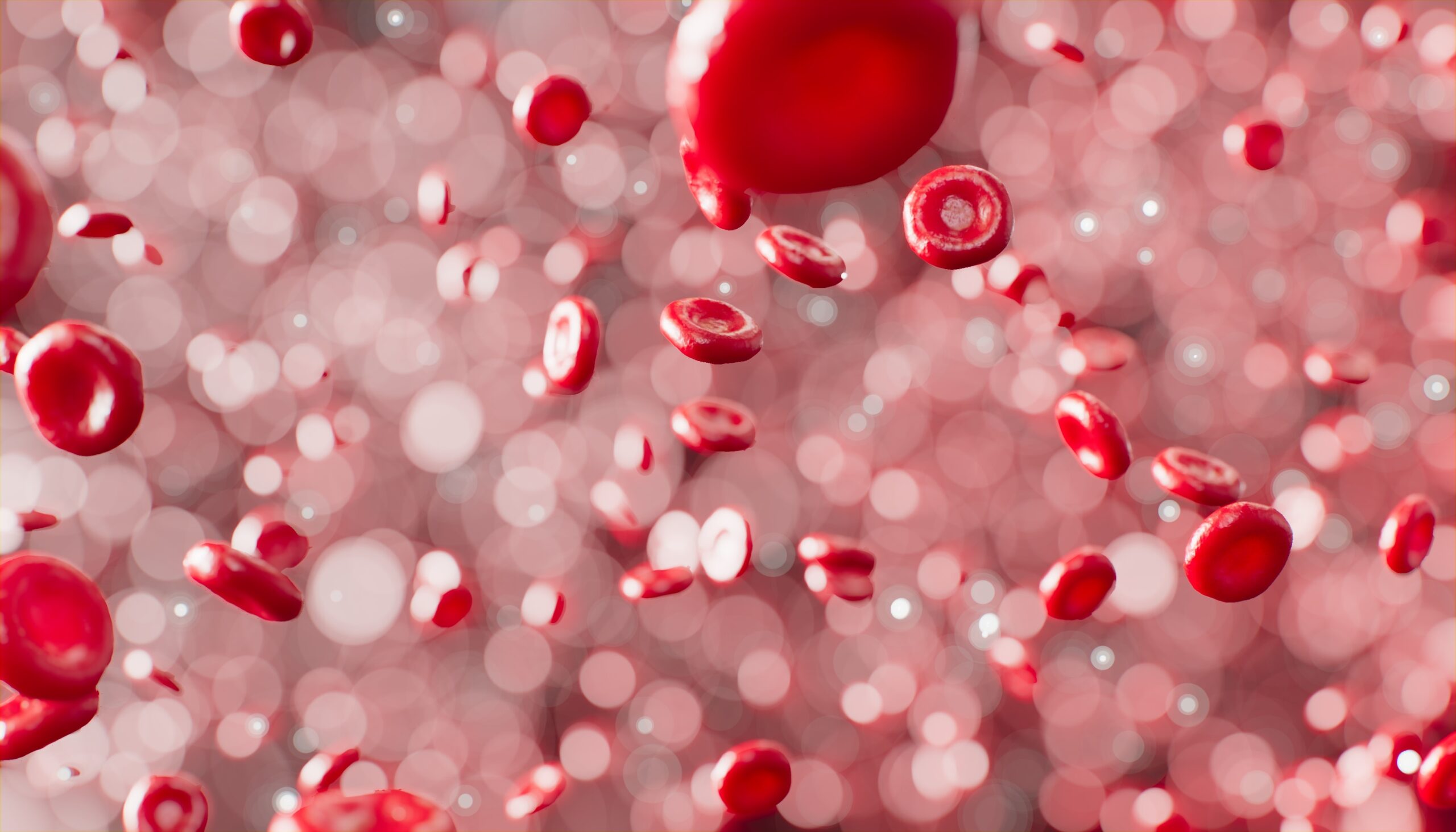
Vitamin B5 is also linked to better performance of the nervous system and a lower risk of diseases affecting the brain. Regular intake of this vitamin promotes better memory by preventing age-related issues with cognitive functions. Evidence shows its deficiency may cause neurodegenerative disorders, Alzheimer's![]() , and dementia.
, and dementia.
Undereating and specific health conditions may lead to vitamin B5 deprivation which results in:
All of the above contribute to bad mental performance. Proper daily intake of vitamin B5 helps maintain normal brain function and cognitive capabilities.
Speeding up the process of wound healing may also be a benefit of vitamin B5. Promising results were achieved in tube and animal studies and have yet to be repeated in human studies. They suggest vitamin B5 promotes faster healing![]() , especially after surgery.
, especially after surgery.
Research suggests that pantothenic acid moistures the skin, but the reason why this happens has yet to be discovered. It also makes the skin look younger, reducing wrinkles, discoloration, and dark spots. Moreover, there is some evidence that it slows down hair aging, allowing them to keep their color for a longer time.
Pantothenic acid may also reduce the symptoms of rheumatoid arthritis![]() , according to some studies. However, the results need to be more vital to reach a consensus among the scientists. According to one study, people with rheumatoid arthritis have lower levels of vitamin B5 than healthy people. What is more, the more severe symptoms, the greater the deficit of this nutrient. It suggests that there is a connection between the deficit and rheumatoid arthritis.
, according to some studies. However, the results need to be more vital to reach a consensus among the scientists. According to one study, people with rheumatoid arthritis have lower levels of vitamin B5 than healthy people. What is more, the more severe symptoms, the greater the deficit of this nutrient. It suggests that there is a connection between the deficit and rheumatoid arthritis.
As indicated in another study, such symptoms of RA as morning stiffness and pain may be relieved due to vitamin B5 intake. These findings need to be repeated in more high-quality studies to be accepted by the scientific community.
Vitamin B1 is naturally found in a variety of animal and plant food. Almost all plant- and animal-based food contain pantothenic acid to some degree, which makes it easy to meet daily recommended levels.
Foods that are the most rich in this nutrient include whole grains, certain vegetables, beef, and chicken![]() . Significant amounts can also be found in cereals, yogurts, and mushrooms. See the table below for more detailed information on the best sources of vitamin B5:
. Significant amounts can also be found in cereals, yogurts, and mushrooms. See the table below for more detailed information on the best sources of vitamin B5:
| Food Source | Serving Size | Vitamin B5 Amount |
| Beef liver, boiled | 3 ounces | 8.3 mg |
| Breakfast cereals, fortified | 1 bowl | 5 mg |
| Shitake mushrooms, cooked | ½ cup | 2.6 mg |
| Sunflower seeds | ¼ cup | 2.4 mg |
| Tuna, fresh, bluefin, cooked | 3 ounces | 1.2 mg |
| Chicken, breast meat, skinless, roasted | 3 ounces | 1.3 mg |
| Avocados, raw | ½ avocado | 1.0 mg |
| Milk, 2% milkfat | 1 cup | 1.8 mg |
| Mushrooms, white, stir-fried | ½ cup | 0.8 mg |
| Potatoes, russet, flesh, and skin, baked | 1 medium potato | 0.7 mg |
| Egg, hard-boiled | 1 large egg | 0.7 mg |
| Greek yogurt, vanilla, nonfat | 5.3-ounce container | 0.6 mg |
| Ground beef, 85% lean meat, broiled | 3 ounces | 0.6 mg |
| Peanuts, roasted in oil | ¼ cup | 0.5 mg |
| Broccoli, boiled | ½ cup | 0.5 mg |
| Salmon | 100 grams | 1.9 mg |
| Lean Pork Chops | 100 grams | 1 mg |
| Lentils | 100 grams | 0.6 mg |
Vitamin B5 can also be supplemented. It is available in multivitamin forms as b-complex dietary supplements and separately as pantothenic acid. Most vitamin B5 products are in pill forms, but powders, soft gels, and tablets are viable options too.
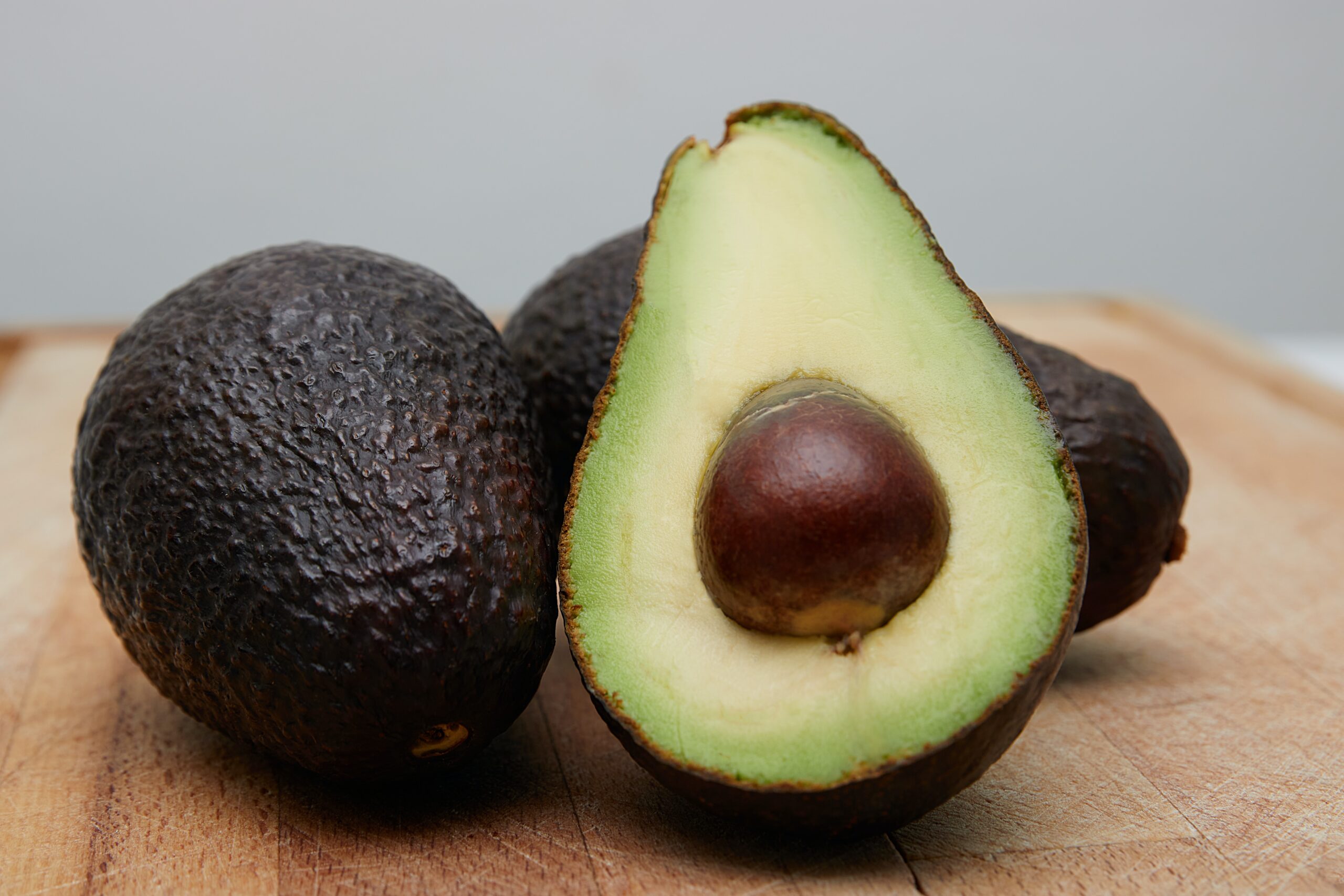
Like other b-complex vitamins, the recommended daily intake of pantothenic acid varies depending on age, sex, and whether you are pregnant or breastfeeding. The table below presents RDA![]() (Recommended Daily Allowance) for vitamin B5:
(Recommended Daily Allowance) for vitamin B5:
| Age | Male | Female | Pregnancy | Breastfeeding |
| 0 to 6 months | 1.7 mg | 1.7 mg | – | – |
| 7–12 months | 1.8 mg | 1.8 mg | – | – |
| 1–3 years | 2 mg | 2 mg | – | – |
| 4–8 years | 3 mg | 3 mg | – | – |
| 9–13 years | 4 mg | 4 mg | – | – |
| 14–18 years | 5 mg | 5 mg | 6 mg | 7 mg |
| Older than 19 years | 5 mg | 5 mg | 6 mg | 7 mg |
Although it is believed that pantothenic acid can only be obtained from plant- or animal-based food, some evidence suggests that bacteria colonizing the large intestine may produce some amounts. It is currently unknown to what degree the bacteria contributes to the daily demand for this nutrient.
Because it is present in most food, vitamin B5 deprivation usually applies to people with severe malnutrition. Deficiency of this compound is often accompanied by a lack of other b-complex vitamins, an inevitable consequence of undereating. It means that symptoms of vitamin b5 deficiency may occur with other signs or be reinforced by the lack of other essential nutrients in the body. Nevertheless, here are the symptoms that are usually linked to the deficiency of vitamin B5 specifically:
Symptoms of deficiency are fully reversible and usually disappear after your body absorbs adequate amounts of vitamin B5.
Some people are more at risk of developing pantothenic acid deficiency. Risk factors include:
There is no established toxicity level of vitamin B5![]() since it is unlikely to happen from just eating food. Consuming it is very safe, even in amounts exceeding the recommended daily intake. Taking extreme doses of vitamin B5 (more than 10 grams per day), you may experience mild stomachache or diarrhea.
since it is unlikely to happen from just eating food. Consuming it is very safe, even in amounts exceeding the recommended daily intake. Taking extreme doses of vitamin B5 (more than 10 grams per day), you may experience mild stomachache or diarrhea.
Vitamin B5 (pantothenic acid ) helps meet several critical goals in the body. The most important roles include:
It is very easily obtainable from both plant- and animal-based food. Most of what we eat contains at least traces of vitamin B5, so it is improbable to develop a deficiency. Risk factors contributing to the deprivation of this nutrient include alcoholism and undereating.
Additional perks of regular B5 consumption may also benefit your hair, skin, and immune system and help reduce symptoms of rheumatoid arthritis.
Table of Contents
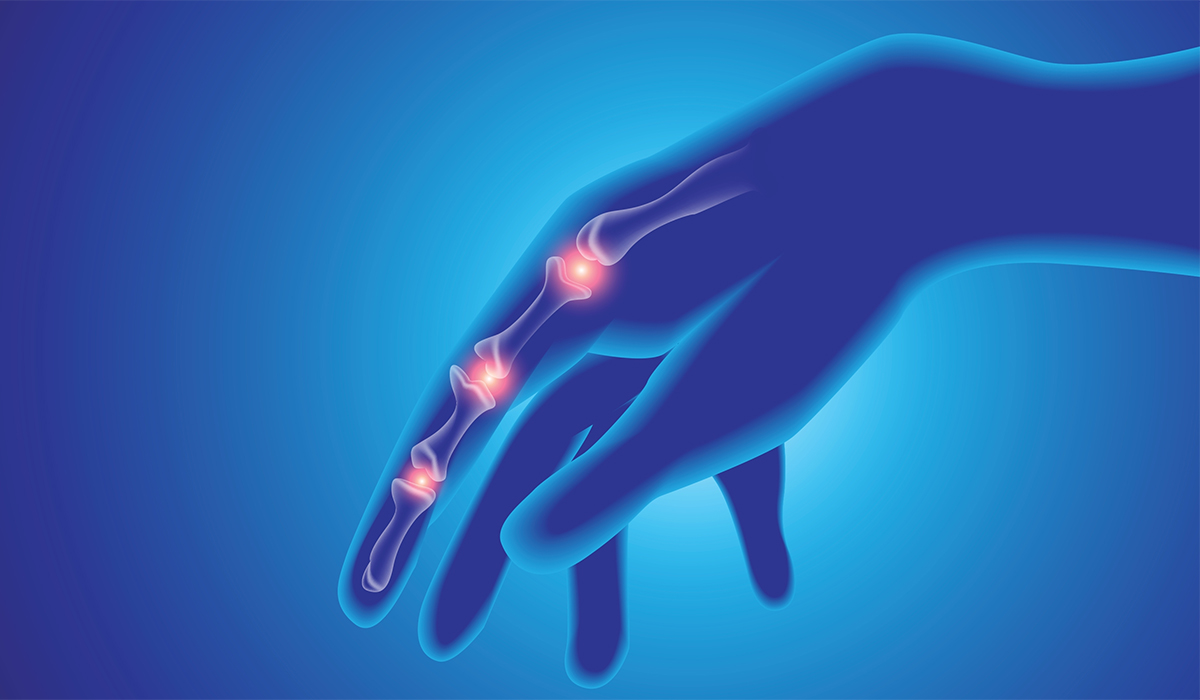
Rheumatoid arthritis is a chronic, progressive autoimmune joint disease. What are its causes? What are the symptoms of the disease… read more »

Muscle pain and stiffness – these can be the first symptoms of arthritis. Learn about the most common types of… read more »
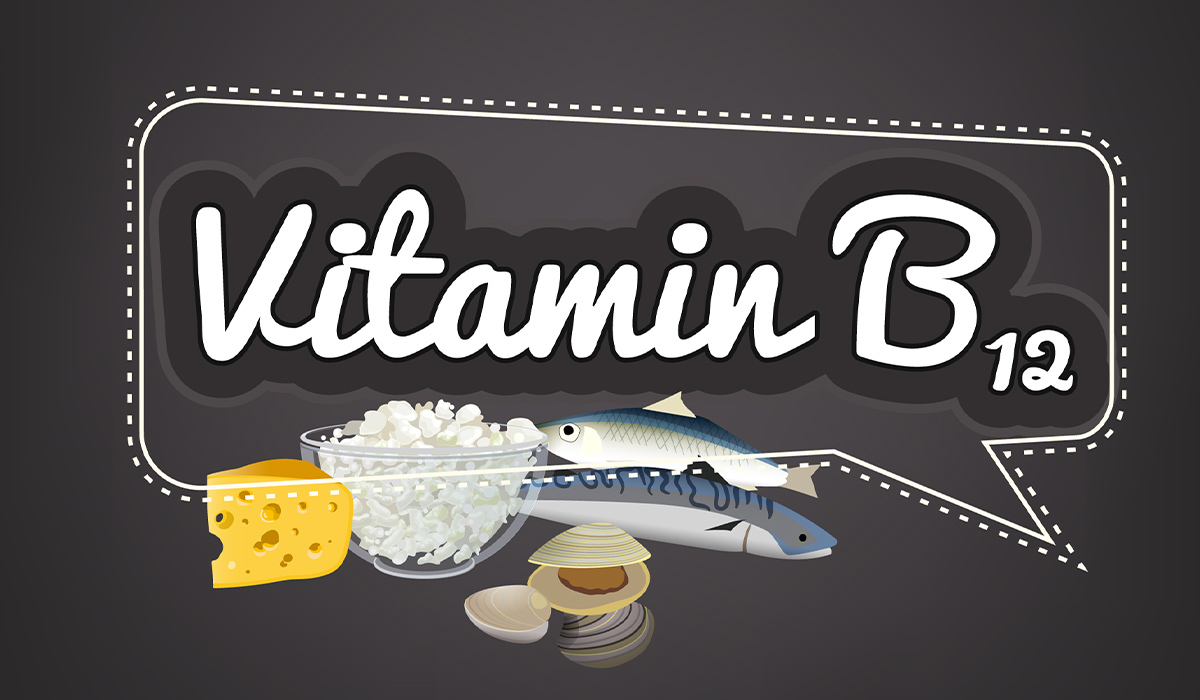
What should you eat to prevent vitamin B12 deficiency? What are the most common symptoms and who is particularly at… read more »
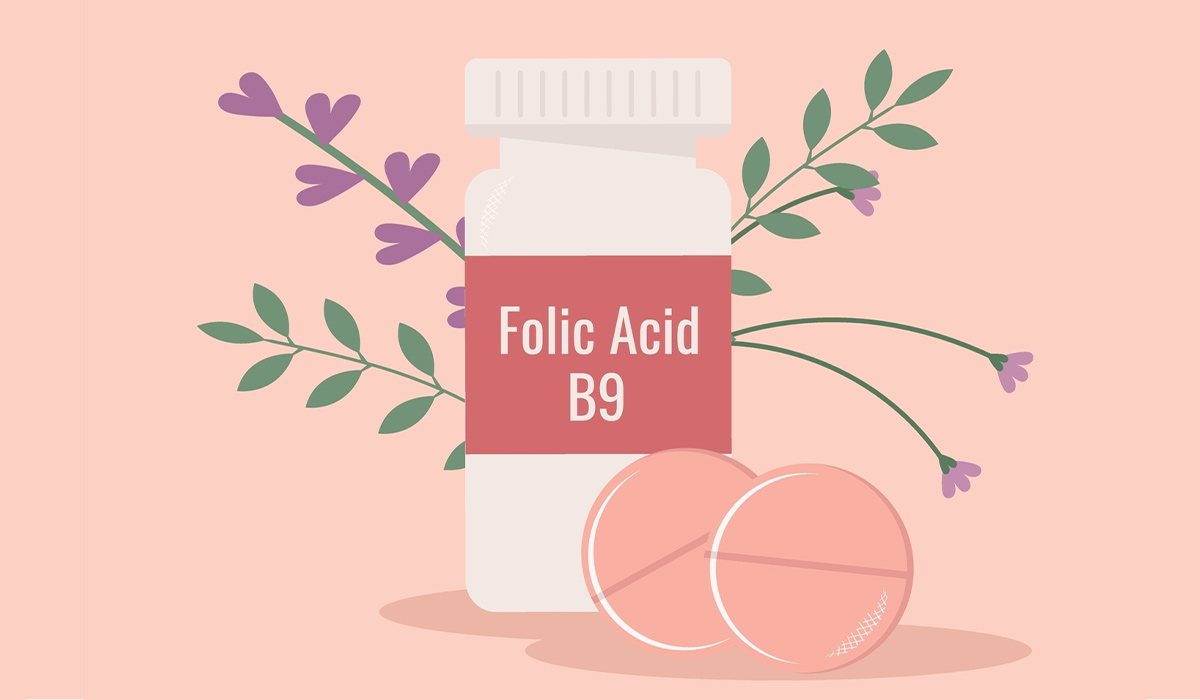
Folate (also reffered as vitamin B9) has many health benefits. Discover them all. Learn, why it is important to take… read more »

Psoriatic arthritis is a long-lasting inflammatory disease of the joints in patients with psoriasis, which can cause joint destruction and… read more »
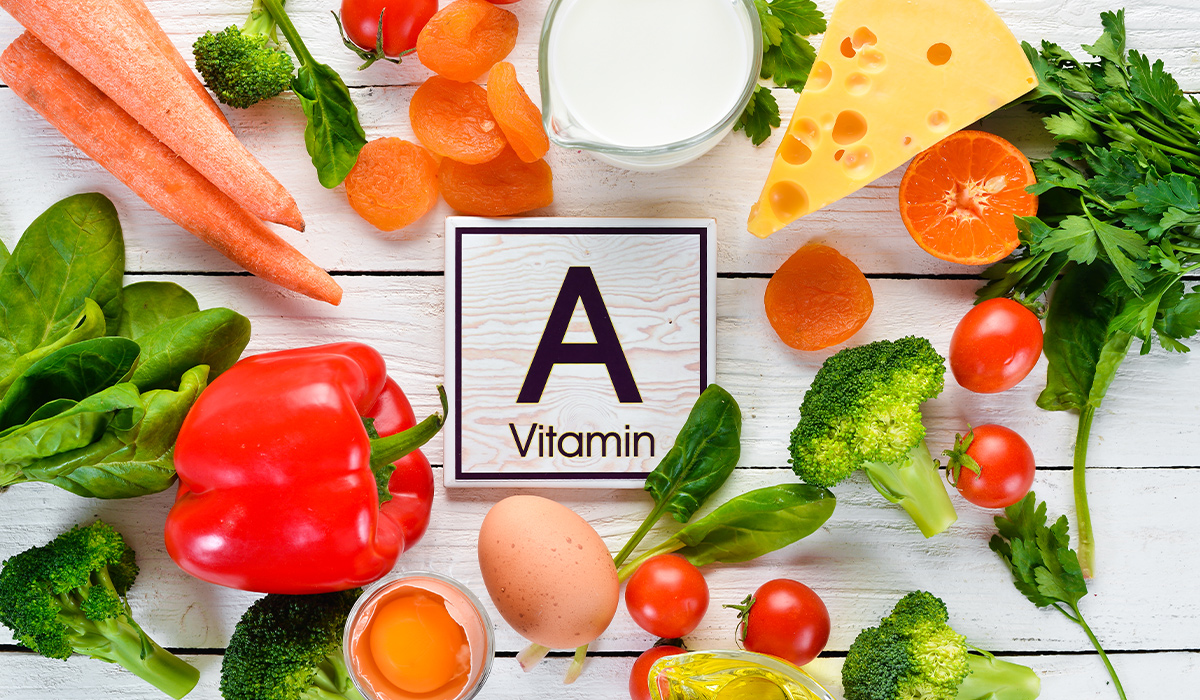
Vitamin A is one of the substances necessary for the proper functioning of the human body. Learn about its health… read more »

Body needs vitamin B6 for correct functioning. Check out, where you can find this vitamin. What are the signs of… read more »
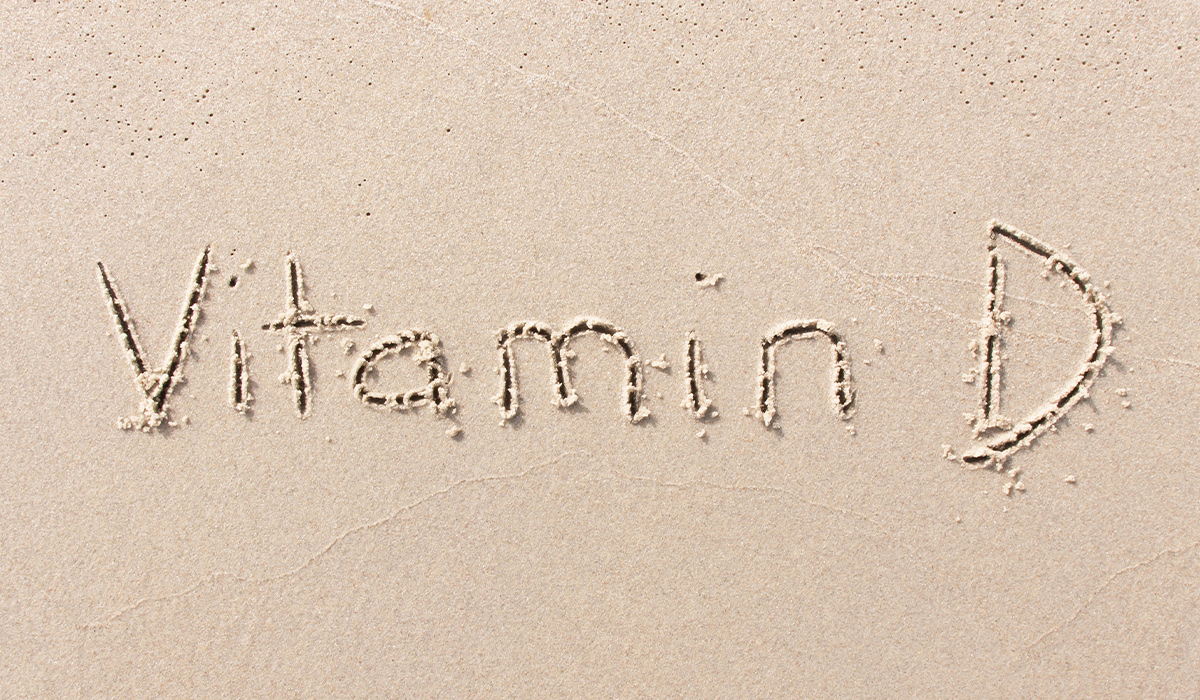
Vitamin D is a fat-soluble nutrient the human body needs to maintain health and functionality. It is both a vitamin… read more »
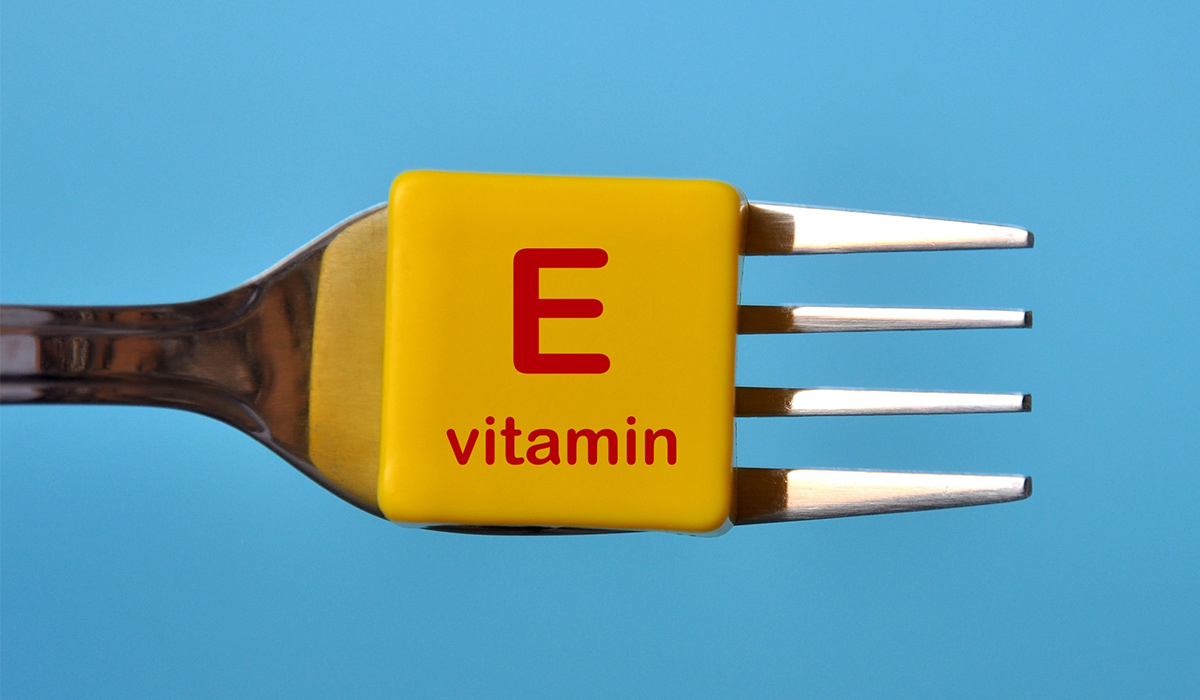
Vitamin E is a nutrient that supports the body's most basic functions. It's essential for the skin, reproduction, vision, and… read more »